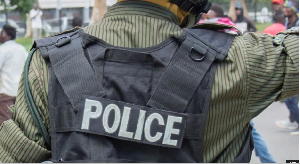If negotiations with government over the ban on importing some category of second-hand and salvaged vehicles fails, we will hit the streets, says the Automobile Dealers Union Ghana (ADUG).
The Majority Leader in Parliament, Osei Kyei Mensah Bonsu, recently revealed government’s bid to put in place a regulatory framework for the importation of ‘second-hand’.
According to him, it will be done through the Customs Amendment Bill which is on the agenda of Parliament for consideration.
Speaking to GhanaWeb, executive member of the Automobile Dealers Union Ghana Nana Kofi Yankah said, his outfit is awaiting a date from stakeholders for possible negotiations on the intended ban.
However, he stated a possible protest if government fails to address their concerns.
“We are waiting for a date so we sit and address our concerns. If our concerns are not considered we will demonstrate. We have done it before. We did it with the luxury tax introduction and our concerns were listened. I am positive that our issues will be sorted out by government.”
Background
Parliament is set to put in place a regulatory framework for the importation of second-hand and salvaged vehicles.
The Majority Leader, Osei Kyei Mensah Bonsu, indicated that such a regime is necessary for the emerging automobile industry. He made this known at an encounter with the media earlier this month.
He believes that these imported vehicles “are the reasons why we have so many accidents on our roads.”
Data from the National Road Safety Authority indicates that in 2018, inattention by drivers led to 41.8 percent of deaths on the country’s roads whilst speeding led to 26.8 percent of deaths recorded.
Meanwhile, Ghana has opened doors for automobile companies to set up their operations in the country.
In 2018, German car-maker Volkswagen announced plans to set up a plant in Ghana as it continues to expand across Africa.
German car-maker is set to open an assembling plant in Ghana in early 2020.
Volkswagen already builds vehicles in Kenya and recently opened another car plant in Rwanda as part of its expansion project in East Africa.
Click to view details



Business News of Monday, 24 February 2020
Source: www.ghanaweb.com







![Deputy Minority Leader, Emmanuel Armah-Kofi Buah [L] and First Lady Rebecca Akufo-Addo Deputy Minority Leader, Emmanuel Armah-Kofi Buah [L] and First Lady Rebecca Akufo-Addo](https://cdn.ghanaweb.com/imagelib/pics/114/11465182.295.jpg)









